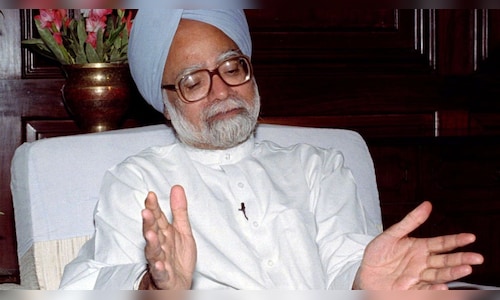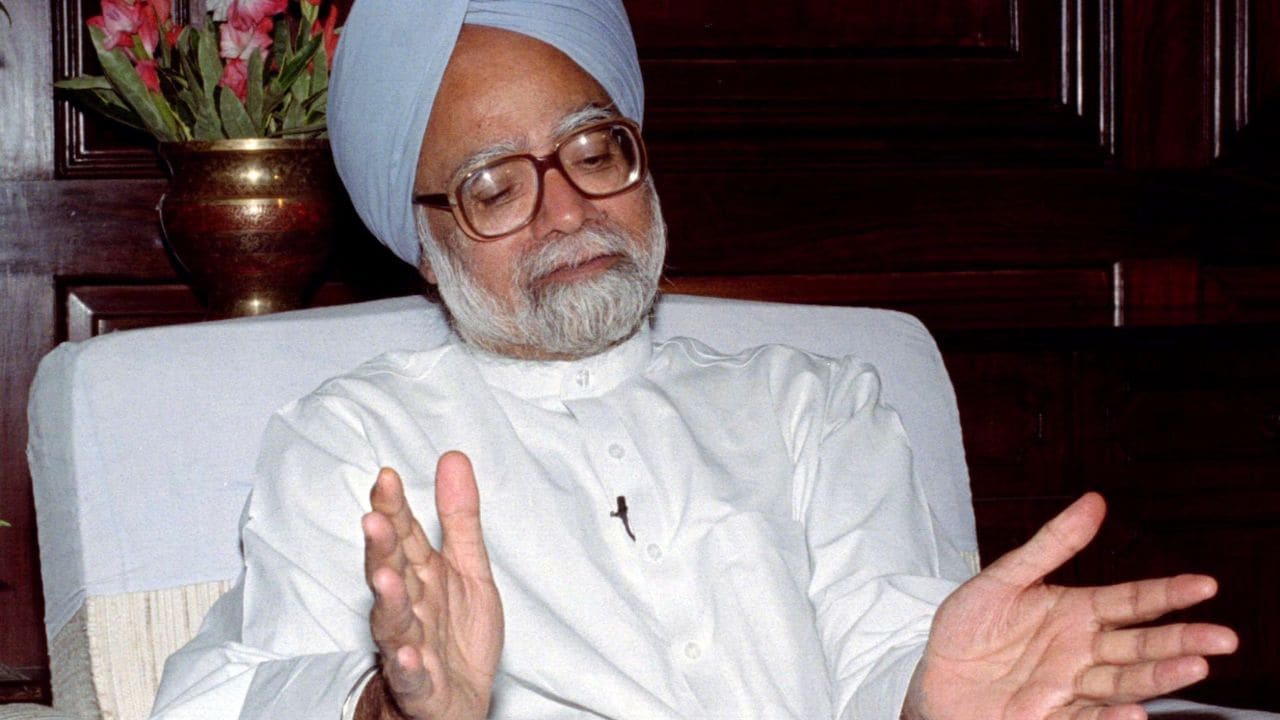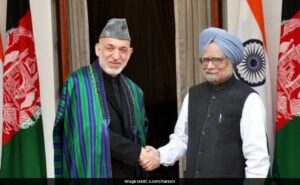

Unassuming, erudite, soft-spoken, and a consensus builder, Manmohan Singh died on Thursday night at Delhi’s All India Institute of Medical Sciences (AIIMS). He was 92.
The Congress leader, who steered the country for 10 years from 2004-2014 and helped set up the country’s economic framework as finance minister before that, was a renowned name in the global financial and economic sectors.
His government introduced pathbreaking initiatives like the Right to Information (RTI), Right to Education (RTE) and MNREGA.
The man who famously spoke of studying under the dim light of kerosene lamps in his village without electricity and went on to become a storied academic was the copybook reluctant politician, almost stumbling into the rough and tumble of mainstream politics.
He was the proverbial dark horse when Sonia Gandhi stepped back from taking the prime minister’s post, ignoring the clamour from her party, and chose him instead. And so Manmohan Singh the academic bureaucrat became the 14th prime minister of India in 2004.
Their partnership that lasted 10 years, the equation between Sonia Gandhi and Singh is often cited for its equanimity and an example of how a working relationship should be. Notwithstanding the inevitable tensions. Singh also had to balance the interests of the United Progressive Alliance’s coalition partners.
NN Vohra, a former Jammu and Kashmir governor, said Singh always “stood firm as a rock in pursuing the ethical path even if he got into trouble with the political party he represented”.
In 2014, the UPA was voted out in a cloud of corruption scams, establishing BJP’s unbroken rule since then. Hailed for putting India on the road to liberalisation and privatisation in the early 1990s, Singh was criticised for turning a blind eye to charges of corruption.
The going often got tough.
During his first tenure as prime minister, the coalition began to unravel when India signed a civil nuclear deal with the US. It almost cost his government with the Left parties pulling out of the UPA coalition. However, his government survived.
On July 22, 2008, the UPA faced its first confidence vote in the Lok Sabha after the Communist Party of India (Marxist) led Left Front withdrew support over India approaching the IAEA for Indo-US nuclear deal. The UPA won the confidence vote with 275 votes to the opposition’s 256, with a record thin 19-vote victory after 10 MPs abstained.
During the fag end of his tenure as prime minister, when he was seen defending his government’s record and the Congress’ positions on controversial issues such as the 2G scam, Singh spoke up and declared he was not weak.
“I honestly hope history would be kinder to me than the contemporary media, or for that matter, the opposition parties in Parliament,” he had said famously in January 2004.
More than two decades later, Congress president Mallikarjun Kharge reacted to Singh’s death with a poignant post on X: “Undoubtedly, history shall judge you kindly, Dr. Manmohan Singh ji!” The decade with Singh at the helm of affairs is widely believed to be an era unprecedented growth and prosperity.
His journey to the acme of India’s governance and political power is unique in the annals of India’s politics.
Singh, always seen in a powder blue turban, was appointed India’s finance minister in 1991 by the Narasimha Rao government. His role in ushering in a comprehensive policy of economic reforms is now recognised worldwide.
In January 1991, India struggled to finance its essential imports, especially of oil and fertilizers, and to repay official debt. In July 1991, the RBI pledged 46.91 tonnes of gold with the Bank of England and the Bank of Japan to raise $400 million.
Manmohan Singh soon steered the economy well and was quick to repurchase it months later.
Vohra, who at the time served successively as defence and home secretary said he had to be at then-finance minister Singh’s door daily, “literally begging for some financial relief for the department I was serving”.
Born to Gurmukh Singh and Amrit Kaur on September 26, 1932, in village Gah in the Punjab province of undivided India (now Pakistan), Singh completed his matriculation examinations from the Punjab University in 1948.
His academic career took him from Punjab to the University of Cambridge, UK, where he earned a First Class Honours degree in Economics in 1957. Singh followed this with a D.Phil in Economics from Nuffield College at Oxford University in 1962.
He started his career by teaching in the faculty of Punjab University and the prestigious Delhi School of Economics. He also had a brief stint at the UNCTAD Secretariat and later became secretary general of the South Commission in Geneva between 1987 and 1990.
In 1971, Singh joined the government of India as economic advisor in the Commerce Ministry. This was soon followed by his appointment as chief economic advisor in the Ministry of Finance in 1972.
Among the many governmental positions that he occupied were secretary in the Finance Ministry, deputy chairperson of the Planning Commission, governor of the Reserve Bank of India, advisor of the prime minister, and chairperson of the University Grants Commission.
His political career started as a member of the Rajya Sabha in 1991, where he was leader of the opposition between 1998 and 2004. Interestingly, the two-time prime minister had a 33-year parliamentary innings but only as a Rajya Sabha member. He never won a Lok Sabha election and lost it once to the BJP’s V K Malhotra from South Delhi constituency in 1999.
Singh was often accused by the BJP of running a government that was marred by corruption. The party called him “MaunMohan Singh” alleging that he did not speak out against corrupt leaders in his cabinet.
Notwithstanding the many epithets, Singh always maintained his dignity.
He is survived by his wife Gursharan Kaur and has three daughters. It is a measure of Singh’s understated personality that the country knew little of his family who also went about their lives as low-key as they could during his 10 years as prime minister.
Singh was quiet but also firm.
Sources close to him said Singh had almost made up his mind to quit as prime minister in September 2013 after Rahul Gandhi dubbed the Union Cabinet’s decision to bring an ordinance to allow convicted politicians to contest elections “complete nonsense” and recommended it be torn. Singh was abroad at the time.
Singh was highly critical of demonetisation by Prime Minister Narendra Modi in 2016 and termed it “organised loot and legalised plunder”.
In reply to the no-confidence motion against his government in 2008, Singh said almost prophetically, “The greatness of democracy is that we are all birds of passage! We are here today, gone tomorrow! But in the brief time that the people of India entrust us with this responsibility, it is our duty to be honest and sincere in the discharge of these responsibilities.”



